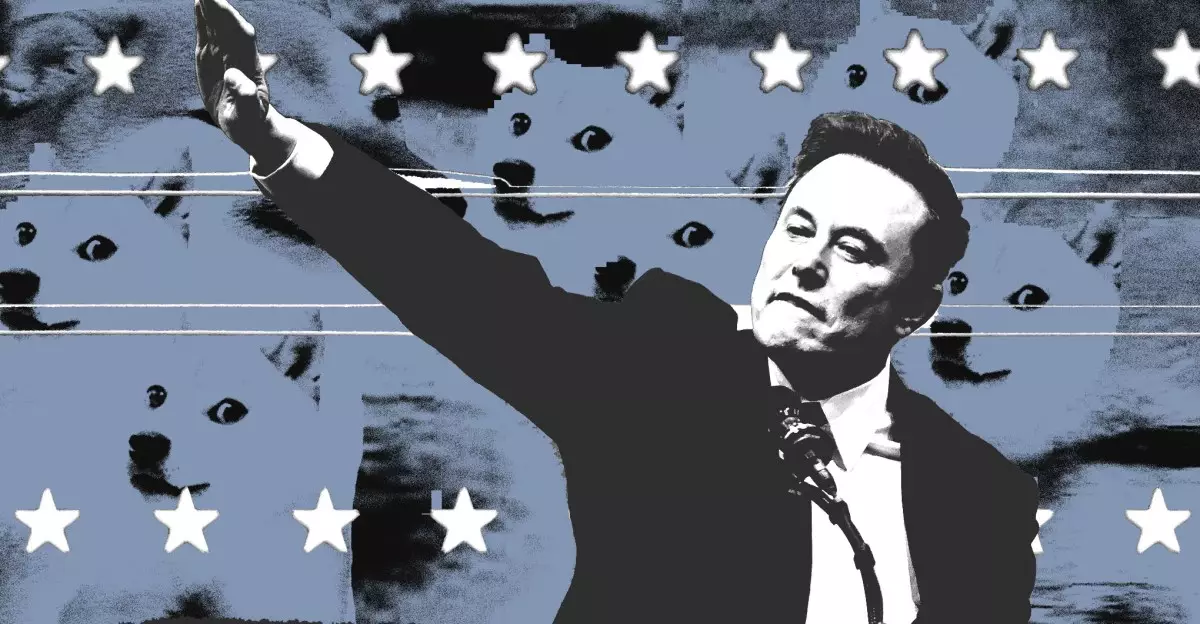The recent revelation regarding Marko Elez—a former staff member of the Department of Government Efficiency (DOGE)—has ignited widespread outrage and concern over the re-emergence of eugenic ideas in political discourse. Elez’s resignation followed the discovery of an archived social media account linked to him, advocating for a “eugenic immigration policy” and even calling for the repeal of the Civil Rights Act. This incident sheds light on a disturbing trend within the current political atmosphere, where extremist ideologies are finding platforms in influential governmental positions.
One cannot ignore the role that social media plays in facilitating the spread of extremist viewpoints. The account, which was active under the handle @nullllptr, showcased an array of inflammatory content. A post declared that “99% of Indian H1Bs will be replaced by slightly smarter LLMs,” reflecting a dismissal of immigration contributions while channeling anti-immigrant sentiment. The use of social media to disseminate official and personal viewpoints blurs the line between public service and personal belief, creating an environment where extremist ideologies can flourish unchecked.
The implications of such posts extend beyond mere rhetoric; they reflect an ideological war against established norms of inclusivity and equality. By proposing policies harking back to the era of eugenics—where certain populations were deemed superior and others inferior—Elez and similarly aligned individuals threaten to unravel decades of progress rooted in civil rights activism.
Elez’s resignation could be perceived as a rare moment of accountability; however, it raises questions regarding the ethical standards involved in hiring practices within governmental agencies. The administration’s recruitment efforts have frequently appeared to favor individuals with extremist backgrounds, as exemplified by the reported hiring of Darren Beattie—a former Trump speechwriter who had been associated with white nationalist circles. Beattie’s outspoken views promote a dangerous narrative that champions the dominance of “competent white men” at the expense of diversity, equity, and inclusion (DEI).
This ideological schism within the federal government illustrates a troubling shift towards a rejection of diversity initiatives. The DOGE’s explicit goal of dismantling DEI programs serves as a chilling reminder of how political ideologies can seep into administrative structures, fundamentally altering the fabric of government operations.
John Ganz’s term “groyperfication” aptly encapsulates the infiltration of extremist ideologies into mainstream conservative thought. As younger conservative staffers engage with an online ecosystem steeped in rhetoric espousing eugenics and white supremacy, we see a generation of political actors who have grown disconnected from the fundamental tenets of democracy and civil rights.
These developments reflect a broader societal trend—where hatred and extremism are cultivated in online spaces and then normalized within political arenas. By glamorizing divisive ideologies under the guise of political discourse, the repercussions can be disastrous, eroding foundational democratic values and sparking wider societal divisions.
A Call for Accountability and Vigilance
The situation surrounding Marko Elez serves as a wake-up call for both the public and the political establishment. We must prioritize transparency and accountability in our government structures to ensure that racist ideologies do not become the status quo. Regulatory bodies must be vigilant in their hiring practices, cultivating an environment that embraces inclusivity rather than ostracizing it.
Fostering a political culture that values diversity and equality is paramount in safeguarding democratic institutions. By amplifying the dialogue surrounding these issues and examining the consequences of complacency, we can work towards a future where eugenics and racism remain firmly in the past—safeguarded by a vigilant society that recognizes the destructive potential of such ideologies.
As the lines between personal belief and public service continue to blur, it is imperative for citizens and policymakers alike to confront the reality of extremist ideologies in the political landscape. Through careful reflection and collective action, we can fortify our commitment to civil rights, ensuring that history does not repeat itself.

